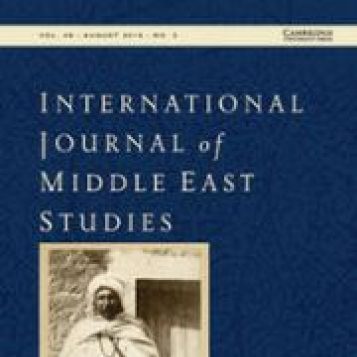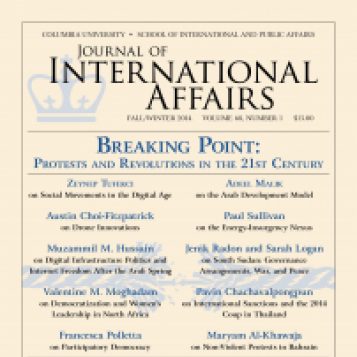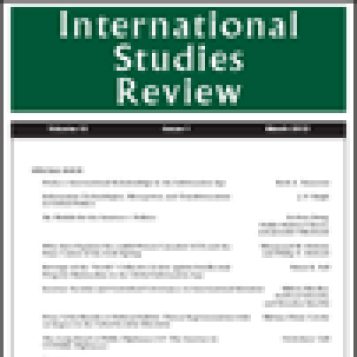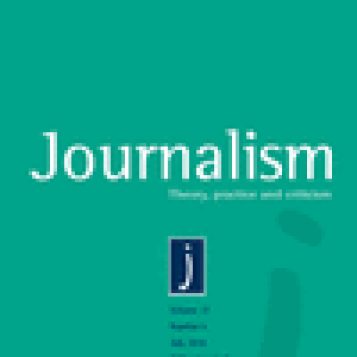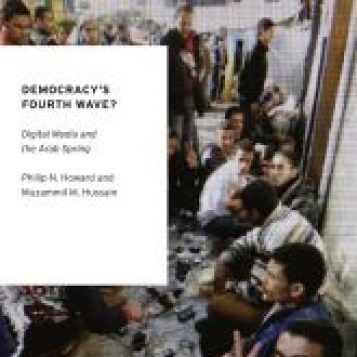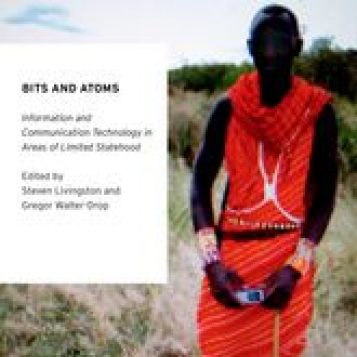Faculty
Office Information:
5377 North Quad
105 S. State St.
Ann Arbor, MI 48109-1285
Education/Degree:
Ph.D., University of WashingtonAbout
Muzammil M. Hussain is Assistant Professor of Communication and Media, Faculty Associate at the U-M International Institute and the U-M Institute for Social Research, and Faculty Affiliate at the U-M Ford School of Public Policy’s Science, Technology, and Public Policy Program (STPP) and the Michigan Institute for Data Science (MIDAS). Dr. Hussain’s interdisciplinary research is at the intersections of global communication, social analytics, and technology governance. At Michigan, Professor Hussain teaches courses on digital politics, research methods, and global innovation. He has authored numerous research articles, book chapters, and industry reports examining global ICT politics, innovation, and policy, including pieces in The Journal of Democracy, The Journal of International Affairs, The Brookings Institutions’ Issues in Technology and Innovation, The InterMedia Institute’s Development Research Series, International Studies Review, International Journal of Middle East Affairs, The Communication Review, Policy and Internet, and Journalism: Theory, Practice, and Criticism.
Affiliation(s)
- U-M Institute for Social Research
- U-M International Institute
- U-M Ford School of Public Policy
- U-M Michigan Institute for Data Science
About
Muzammil M. Hussain is Assistant Professor of Communication and Media, Faculty Associate at the U-M International Institute and the U-M Institute for Social Research, and Faculty Affiliate at the U-M Ford School of Public Policy’s Science, Technology, and Public Policy Program (STPP) and the Michigan Institute for Data Science (MIDAS). Dr. Hussain’s interdisciplinary research is at the intersections of global communication, social analytics, and technology governance. At Michigan, Professor Hussain teaches courses on digital politics, research methods, and global innovation. He has authored numerous research articles, book chapters, and industry reports examining global ICT politics, innovation, and policy, including pieces in The Journal of Democracy, The Journal of International Affairs, The Brookings Institutions’ Issues in Technology and Innovation, The InterMedia Institute’s Development Research Series, International Studies Review, International Journal of Middle East Affairs, The Communication Review, Policy and Internet, and Journalism: Theory, Practice, and Criticism.
Affiliation(s)
- U-M Institute for Social Research
- U-M International Institute
- U-M Ford School of Public Policy
- U-M Michigan Institute for Data Science
Hussain's publications
Three Arenas for Interrogating Digital Politics in Middle East Affairs
Muzammil Hussain (Article)
International Journal of Middle East Studies / Volume 47 / Issue 02 / May 2015, pp 366-368 Copyright © Cambridge University Press 2015
DOI: http://dx.doi.org/10.1017/S0020743815000136 (About DOI), Published online: 27 April 2015
In this essay, we specify three arenas of inquiry for interrogating the “digital age,” and explore the relevancy of these arenas for contemporary politics in the Middle East andNorth Africa (MENA).
Digital Infrastructure Politics and Internet Freedom Stakeholders after the Arab Spring
Muzammil Hussain (Article)
Name of Periodical: The Journal of International Affairs (Special Issue: Breaking Point: Protests and Revolutions in the 21st Century) Vol 68, No 1 Fall/Winter 2014- Article Page 37-56
This article presents a brief characterization of the transformational consequences of the Arab Spring for global policy frameworks and democracy promotion efforts regarding Internet infrastructure. To do so, we begin with unpacking the battle that took place in Dubai in December 2012 at the World Conference on International Telecommunications (WCIT-12) between competing state powers, technology policy...
See MoreTags: Political Communication
What Best Explains Successful Protest Cascades? ICTs and the Fuzzy Causes of the Arab Spring
Muzammil Hussain (Article)
Name of Periodical: International Studies Review (Special Issue: International Relationships in the Information Age) Year of Publication: 2013
It has been 15 years since the last wave of democratization. But as a region, North Africa and the Middle East were noticeably devoid of popular democracy movements—until the early months of 2011. Democratization movements had existed long before technologies like mobile phones and the Internet came to these countries. But with these technologies, people sharing an interest in democracy built extensive networks and activated collective action...
See MoreJournalism’s Digital Disconnect: The Growth of Campaign Content and Entertainment Gatekeepers in Viral Political Information
Muzammil Hussain (Article)
Name of Periodical: Journalism: Theory, Practice, and Criticism Volume Number: 13 Issue Number: 8 Year of Publication: 2012 Page Numbers: 1022-1038
There is much concern about the long-tail of online political information that now competes with standard news content. Yet we know little about how successfully it does so, and why. From the 2008 US presidential campaign, I develop a rich, original meta-database to map the relationships between the top viral election videos (278 million views) and the known-universe of blogs that linked to them (13,000 links). Through a mixed-method ...
State Power 2.0: Authoritarian Entrenchment and Political Engagement Worldwide
Muzammil M. Hussain, Philip N. Howard (Book)
Digital media and online social networking applications have changed the way in which dissent is organized with social movement leaders using online applications and digital content systems to organize collective action, activate local protest groups, network with international social movements and share their political perspectives. In the past, authoritarian regimes could control broadcast media in times of political crisis by destroying newsprint supplies, seizing radio and television stations, and blocking phone calls. It is much more difficult to control media in the digital age though ...
See MoreDemocracy’s Fourth Wave? Digital Media and the Arab Spring
Muzammil M. Hussain (Book)
Did digital media really "cause" the Arab Spring, or is it an important factor of the story behind what might become democracy's fourth wave? An unlikely network of citizens used digital media to start a cascade of social protest that ultimately toppled four of the world's most entrenched dictators. Howard and Hussain find that the complex causal recipe includes several economic, political and cultural factors, but that digital media is consistently one of the most important sufficient and necessary conditions for explaining both the fragility of regimes and the success of social movements...
See MoreInformation Technology and the Limited States of the Arab Spring
Muzammil M. Hussain
Digital media have allowed spatially distant communities to realize shared grievances and political goals in many nondemocratic countries. It is also through digital media that citizens document, and sometimes test, the weaknesses and limits of state power. Information and communication technologies (ICTs) have extended the capacity of societal actors in many cases, but are not as effectively used by states to improve governance. Thus, the condition of limited statehood had made many Arab regimes surprisingly brittle, especially during the mass mobilizations of the Arab Spring. Over the course...
See More
